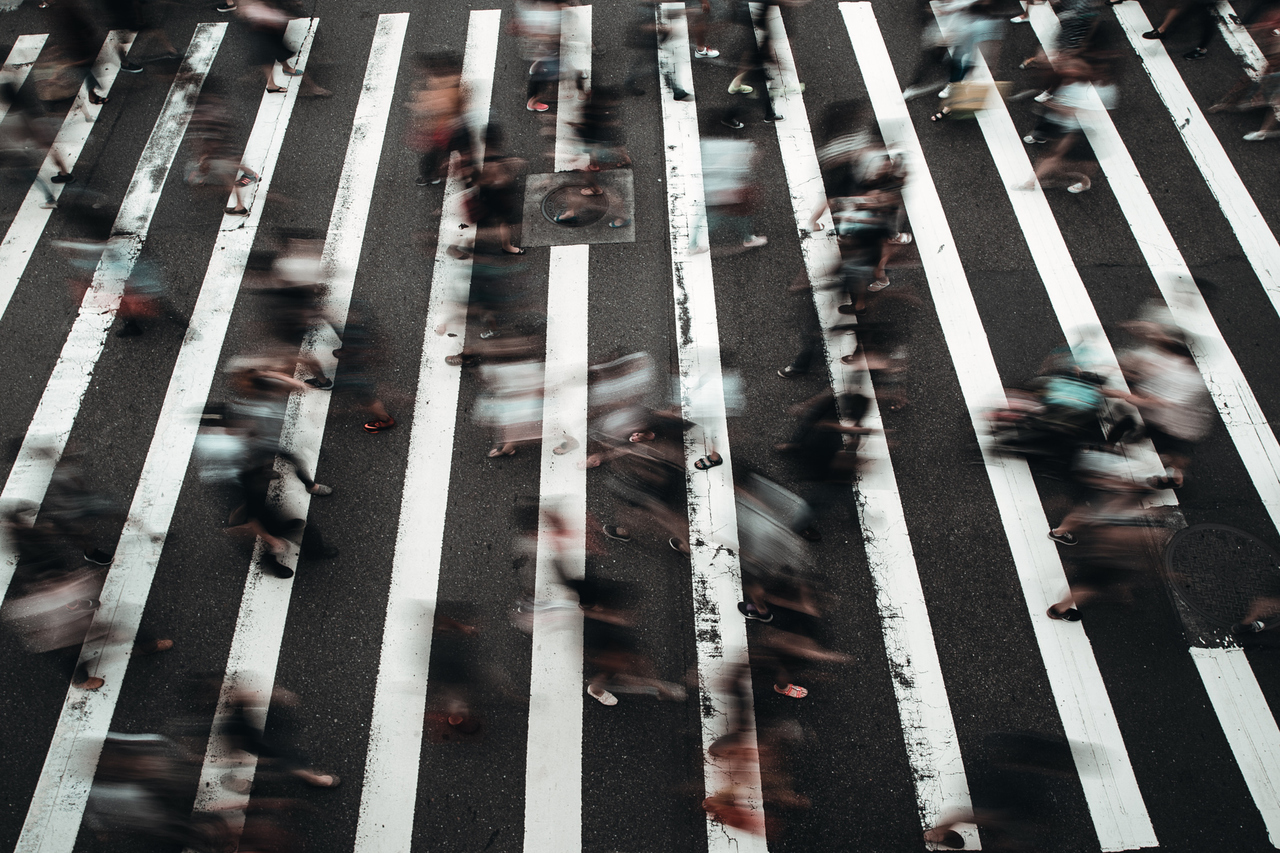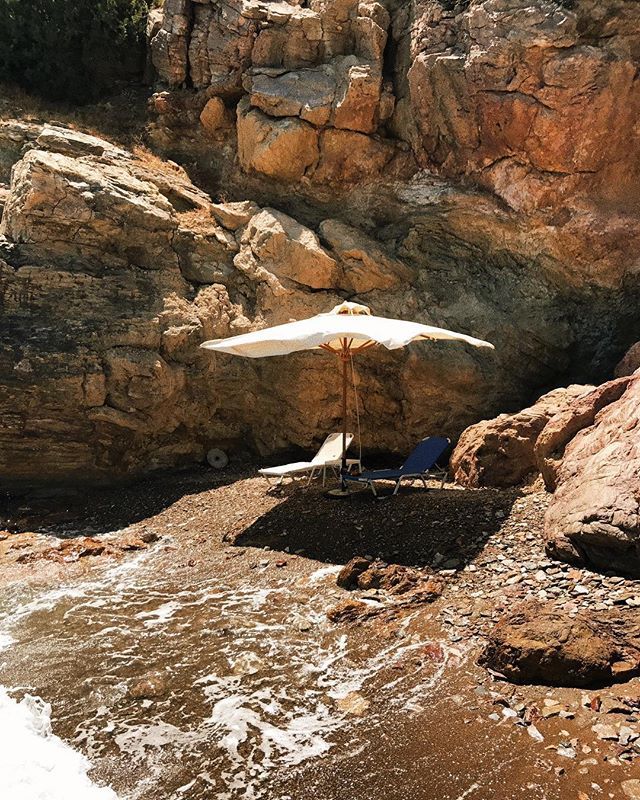A recent New York Times article told the story of a young journalist from Tokyo, Miwa Sado, who worked 159 hours of overtime in one month, and then died. In Japan, they have a term for this — it’s called “karoshi” — or death from overwork.
Karoshi is a phenomenon that Japan started recognizing in the ’80s. In America, karoshi is seemingly an unspoken part of everyday life. And now that science is starting to explain the health implications of burnout, stress and lack of sleep, we’re beginning to understand why rest is such a fundamental component to our well-being. But rest, in this case, means more than eight hours a night.
Karoshi (Japanese) = Death from overwork
Sometimes, coming “back to good” takes more time than we think, and more time than we dare to give ourselves. In a society that preaches a “no pain, no gain” mentality and puts the hustle on a pedestal, the thought of taking a month-long trip with the sole purpose of unplugging seems like a nice afterthought, but far from reality.
The main problem here is falling victim to societal expectations—which is also a product of our generation. A study by Project Time Off calls this “martyr complex,” ie feeling the need to be a perfect employee (meaning, take no time off), out of fear of being laid off by bosses, judged by co-workers, or inability to see the plausibility of stepping away from our role.
We’re glued to our jobs, and never giving ourselves the chance to become unglued.
In other words, we’re stuck.

As a result, the overtime hours pile, and the vacation days go unused—often without rolling over to the next year. This is acceptable on occasion, but a dangerous norm to live by. Our bodies need space to reset, move slow, and find their own way back to center. When we swing between long hours and demanding jobs — our body goes into overdrive, and it stays there until we change it.
This imbalance manifests into physical and mental conditions. Burnout sends our bodies whirling into a stress response, releasing cortisol into the bloodstream. On a biochemical level, our body produces cortisol to help us respond to danger and get to safety—like in a fight-or-flight situation. It’s good when we need it, but toxic to overdo it. Yet, we are. And our guilt about allowing time to rest is keeping us there.
Stress can seem like a normal part of the job when everyone else is stressed out too. Yet, it’s the leading reason of every major health condition we face in Western society. Stress is killing us, yet it’s socially accepted—praised, even—as people would rather be seen as hard working than lazy. This needs to change. And this is where self-care comes in. We are better friends, employees, and contributors when we prioritize our mental and physical well-being, above all else.

If mandatory vacation days and unplugging terms were workforce standard, we would demand our holidays with confidence, rather than guilt or shame. Institutions would encourage and prescribe long holidays to different cultures with no email, knowing these experiences are ultimately for the good of everyone.
The reality it, we can meditate and workout and drink all the green juice. We can do easy going yoga as a daily practice. But sometimes we need something more. Sometimes we need to physically uproot ourselves, in a major way, in order to allow our body a chance to naturally reset. Sometimes we reach such an extreme breaking point, where only a significant change can truly allow our body a chance to fully heal and reset. Often, we don’t know how dire a situation is until it’s either too late, or too far behind us.
This is the thing about travel. The experience in itself is a self-correcting mechanism for change.
This is the thing about travel. The experience in itself is a self-correcting mechanism for change. This is because embarking on the trip automatically causes everything to shift. Our routines change, timezones are different, major relationships are not a part of the every day. This gives us an opportunity to change our habits and our thoughts. When we do this, our life changes too.
When we embrace massive change and give ourselves enough time to live this way, our body has it’s natural way of re-balancing. But the results are more fast and dramatic than we could ever imagine.

Traveling allows us space to have an enriching experience with ourselves and our world. When this happens, we drop the stress, lose the weight, anxiety, uncertainty, and overwhelm, without any medicine. All of our conditions which were a by-product of stress melt away.
When we create space for harmony to enter into our lives, it flows in, and we find a newfound ease. This all happens naturally—the only thing you did was book the trip.
Meaningful experiences rewire our nervous system. They create new neurological pathways, and serotonin (the feel-good hormone) starts to reproduce in our body.
Meaningful experiences rewire our nervous system. They create new neurological pathways, and serotonin (the feel-good hormone) starts to reproduce in our body. We’re feeling better because we’re feeling real connection, laughter, a broadening perspective and increased empathy. We’re experiencing rapid growth, which feels good. And when our emotions change, we change.
We just need to give our body the chance to live this way, and respond to how we feel. If only doctors were to prescribe us a long vacation, without a laptop, in a faraway country with a different culture instead of medications. If only HR departments demanded we take the trip before we start our new job, instead of starting right away. If only we viewed travel not as an indulgent, self-righteous experience, but as an essential part of our self-care regime, where a slow experience of coming back to center is culturally valued and socially encouraged.
If only we viewed travel not as an indulgent, self-righteous experience, but as an essential part of our self-care regime.
Because more than the social currency and seeing of sights, traveling is a way to heal. It’s a gateway to natural wellbeing. And it’s a vehicle to become more of the person you already are.
And the cool thing about it, it’s less expensive than the combination of therapy, gym memberships, prescription costs and your 10am matcha. So why wouldn’t you?
When we choose ourselves, we prioritize our health. When we prioritize self-care, we realize feeling good has a ripple effect. When we feel good, we help everyone around us feel good too.
So take the trip, and watch everyone around you benefit. And don’t for a minute feel bad about it.


3 thoughts on “Why Travel Should Be An Essential Part Of Your Self-Care Routine”
Comments are closed.